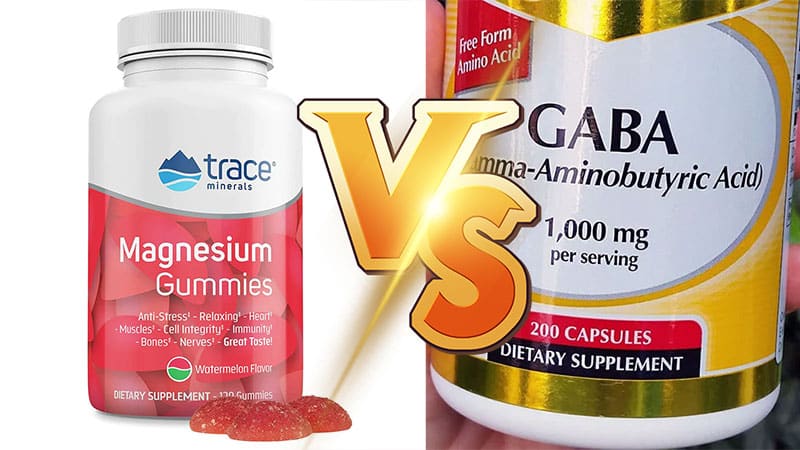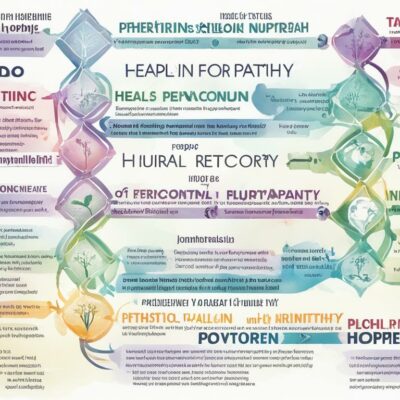
Magnesium vs GABA: Which is Better for Sleep?
Are you having trouble sleeping at night? Insomnia can be a frustrating and tiring condition to deal with. The lack of sleep can affect your daily productivity and even your overall health. Luckily, there are natural supplements that can help you improve your sleep quality. Magnesium and GABA are two of the most popular natural sleep aids. But which one is better for sleep? In this article, we will compare the benefits and side effects of magnesium and GABA and help you decide which supplement might work best for you.
What is Magnesium?
Magnesium is a mineral that plays a crucial role in many bodily functions. It is necessary for healthy bones, muscle and nerve function, and energy production. Magnesium also has a calming effect on the body and is known to improve sleep quality. This is because magnesium regulates the production of melatonin, a hormone that helps control our sleep-wake cycles.
What is GABA?
GABA (gamma-aminobutyric acid) is a neurotransmitter that is naturally produced in the brain. It is known to have a calming effect on the nervous system and is often used to treat anxiety and stress-related disorders. GABA supplements are also popular among individuals who struggle with sleep disorders.
Benefits of Magnesium for Sleep
Magnesium has been shown to improve sleep quality and duration. Studies have found that magnesium supplementation can increase melatonin levels, reduce cortisol levels, and improve sleep efficiency. Magnesium also has a relaxing effect on the muscles, which can help alleviate restless leg syndrome and other sleep-related disorders.
Benefits of GABA for Sleep
GABA is known to have a calming effect on the nervous system, which can help individuals fall asleep faster and stay asleep longer. GABA supplements are often used to treat insomnia and other sleep disorders. GABA has also been found to reduce anxiety and stress levels, which can contribute to better sleep quality.
Side Effects of Magnesium
Magnesium is generally considered safe for most individuals. However, some people may experience side effects such as diarrhea, nausea, and stomach cramps when taking high doses of magnesium supplements. Individuals with kidney problems should avoid taking magnesium supplements as they may be at risk of developing hypermagnesemia, a condition characterized by an excess of magnesium in the blood.
Side Effects of GABA
GABA supplements are generally considered safe for most individuals. However, some people may experience side effects such as drowsiness, dizziness, and headaches. GABA supplements may also interact with certain medications, so it is important to consult with a healthcare provider before taking GABA supplements.
Magnesium vs GABA: Which is Better for Sleep?
Both magnesium and GABA have been found to have a positive effect on sleep quality. Magnesium is more effective in regulating the production of melatonin, a hormone that helps control our sleep-wake cycles. On the other hand, GABA has a more direct calming effect on the nervous system, which can help individuals fall asleep faster and stay asleep longer.
How to Take Magnesium and GABA Supplements
Magnesium supplements are available in different forms, including magnesium citrate, magnesium glycinate, and magnesium oxide. It is recommended to take magnesium supplements before bedtime to promote better sleep quality.
GABA supplements are available in the form of capsules, tablets, and powders. It is recommended to take GABA supplements 30-60 minutes before bedtime to promote relaxation and improve sleep quality.
Conclusion
Magnesium and GABA are both natural supplements that can help improve sleep quality. Magnesium is more effective in regulating the production of melatonin, while GABA has a more direct calming effect on the nervous system. Both supplements are generally considered safe, but it is important to consult with a healthcare provider before taking any new supplement, especially if you have any underlying health conditions or are taking medications that may interact with these supplements.
In summary, if you’re struggling with sleep issues, both magnesium and GABA may be worth considering. They offer different benefits and may be more effective for some individuals than others. As with any supplement, it’s important to do your research, talk to your healthcare provider, and start with a low dose to assess your tolerance and response.
FAQs
Can I take magnesium and GABA together?
Yes, you can take magnesium and GABA together, but it’s important to start with a low dose and monitor your response. It’s also important to talk to your healthcare provider, especially if you’re taking any medications or have any underlying health conditions.
Can magnesium and GABA cause drowsiness?
Yes, both magnesium and GABA can cause drowsiness, especially at higher doses. It’s important to start with a low dose and monitor your response, especially if you need to be alert and focused during the day.
Are there any foods that are high in magnesium?
Yes, magnesium is found in many foods, including dark leafy greens, nuts and seeds, whole grains, fish, and dark chocolate. However, it may be difficult to get enough magnesium from diet alone, which is why many people turn to supplements.
Can I become dependent on GABA supplements?
There is no evidence to suggest that GABA supplements are habit-forming or addictive. However, it’s important to talk to your healthcare provider before taking any new supplement, especially if you have a history of substance abuse or addiction.
How long does it take for magnesium and GABA supplements to work?
The effects of magnesium and GABA supplements may vary depending on the individual and the dose. Some people may notice improvements in sleep quality within a few days, while others may need several weeks to see a difference. It’s important to be patient and consistent with your supplement regimen and to talk to your healthcare provider if you’re not seeing any improvements.










